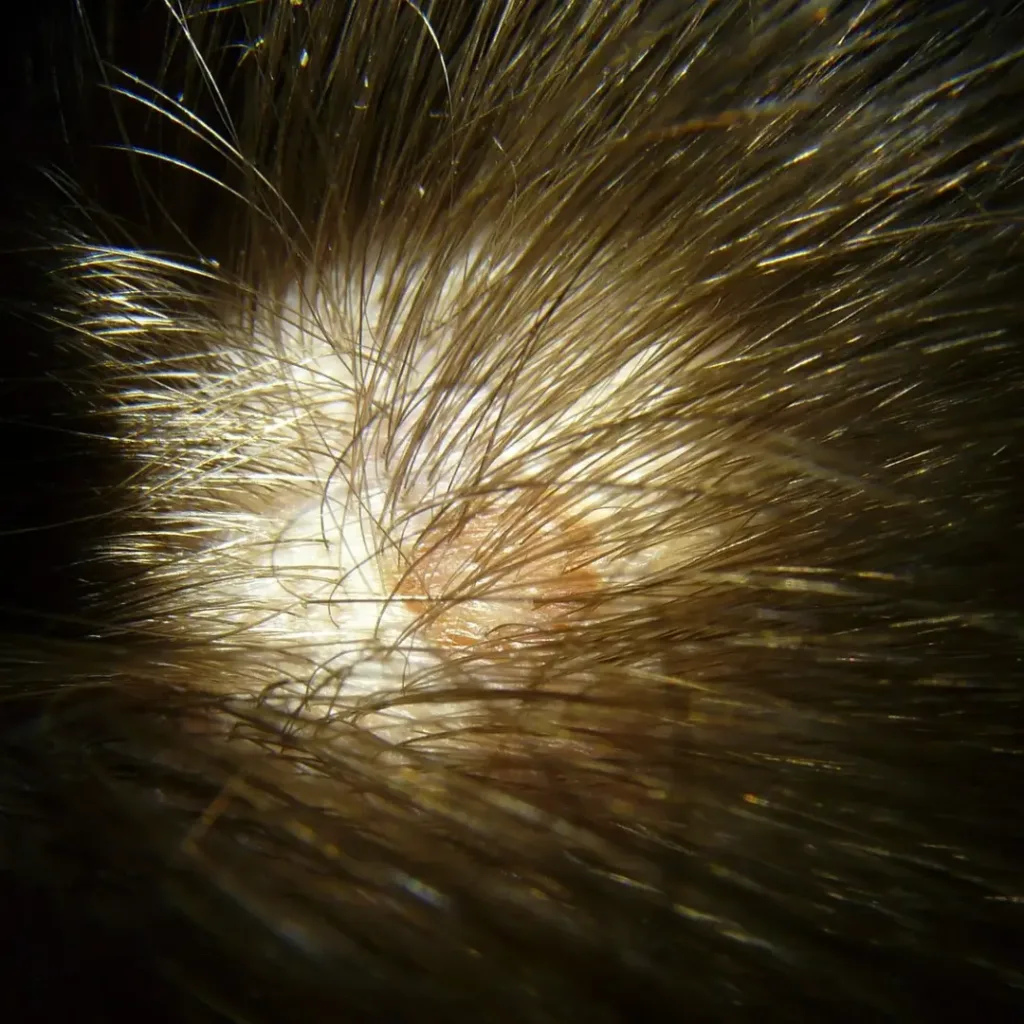A Holistic Approach to Managing Scalp Psoriasis Symptoms at Lydia153 Houston: Your Premier Scalp Spa in Houston and New-Age Holistic Head Spas Serving the Metro Area.
Scalp psoriasis is a common but often misunderstood condition affecting nearly half of all individuals with psoriasis. Characterized by red, inflamed patches of skin covered with silvery scales, this autoimmune disorder can impact not only the scalp but also surrounding areas such as the hairline, forehead, back of the neck, and the skin around the ears. For many, the symptoms go beyond physical discomfort, significantly affecting their quality of life, confidence, and emotional well-being.
At Scalp To Face Boutique, Lydia153 Houston, a leading scalp spa in Houston, we believe that managing scalp psoriasis symptoms requires more than just treating the skin’s surface. Our holistic approach combines specialized scalp treatments with education, lifestyle adjustments, and tailored advice on improving immune function. By working with the body’s natural systems, we help our clients manage their symptoms effectively, often avoiding the need for stronger medications like corticosteroids, which can have long-term side effects.
What is Scalp Psoriasis?
Scalp psoriasis is an autoimmune disorder where the body’s immune system overreacts, causing skin cells to reproduce at an abnormally fast rate. Normally, skin cells renew every 28 to 30 days, but in individuals with psoriasis, new skin cells form as often as every 3 to 4 days. This rapid turnover leads to the buildup of dead skin cells, resulting in inflamed, red, and raised areas covered with silvery scales.
The condition can range from mild cases, where scaling resembles dandruff, to severe cases with thick plaques covering large areas of the scalp. While scalp psoriasis may resemble other skin conditions like seborrheic dermatitis, it can be distinguished by its powdery, silvery appearance compared to the greasy, yellowish scales seen in seborrheic dermatitis.
How Scalp Psoriasis Impacts Quality of Life
Scalp psoriasis can be particularly challenging to manage due to the sensitivity of the scalp and the difficulty of applying treatments effectively through hair. The condition often leads to itching, burning, and discomfort, and in more severe cases, it can cause hair loss or even bleeding.
Because the scalp is such a visible area, many individuals experience emotional distress, feeling self-conscious about their appearance. According to the National Psoriasis Foundation, scalp psoriasis is considered a “high-impact” site, meaning that even if only a small area is affected, it can have a significant negative impact on a person’s quality of life.
Treatment Options for Scalp Psoriasis
Treatment options for scalp psoriasis vary depending on the severity of the condition. Over-the-counter products, such as shampoos containing salicylic acid or coal tar, may be effective for mild cases. These ingredients help soften and remove scales, as well as reduce inflammation.
For more severe cases, topical medications like corticosteroids or vitamin D analogs may be prescribed. Phototherapy, or light therapy using ultraviolet (UV) light, can also benefit some individuals. In extreme cases, oral medications or biologics may be necessary to target the immune system directly.
While these treatments can be effective, they often come with potential side effects, especially when used over long periods. Prolonged use of corticosteroids can lead to skin thinning, increased risk of infections, and other complications. That’s why at Lydia153 Houston, we offer a holistic alternative, helping clients manage their symptoms naturally without relying on strong medications.
Lydia153 Houston’s Holistic Approach to Managing Scalp Psoriasis Symptoms
At Lydia153 Houston, we take a holistic approach to scalp psoriasis, focusing on both symptom management and long-term immune health. We understand that scalp psoriasis is not just a skin condition but an indication of a deeper imbalance in the body’s immune system. That’s why we address the root cause through lifestyle, diet, and gentle treatments that promote overall well-being.
Here’s how we help our clients at our holistic head spas in Houston:
- Education on Proper Scalp Care: Proper cleaning and drying of the scalp are essential for managing psoriasis symptoms and preventing flare-ups. At Lydia153 Houston, we provide clients with personalized advice on how to gently clean their scalps without exacerbating inflammation or causing further irritation. This includes guidance on maintaining a healthy protective layer, crucial for fortifying the scalp’s natural barrier against environmental stressors.
- Diet and Lifestyle Adjustments: Since psoriasis is closely linked to the immune system, we offer guidance on improving immune function through diet and lifestyle changes. Anti-inflammatory foods, such as those rich in omega-3 fatty acids, and maintaining a balanced diet can help reduce flare-ups. We also emphasize the importance of reducing stress, which is known to trigger psoriasis symptoms, through relaxation techniques like meditation and yoga.
- Immediate Symptom Relief with RS-3 Ampoule: For immediate relief from itching and discomfort, we apply our RS-3 ampoule—a powerful serum rich in natural nutrients and antioxidants—to hydrate and nourish the scalp. This ampoule helps to calm inflamed areas while also reducing flakiness and scaling. By moisturizing the affected areas, the RS-3 ampoule can provide significant relief from the itching and discomfort associated with scalp psoriasis.
- Gentle Automated Cupping Massage to improve Lymphatic Flow and Blood Circulation: In addition to topical treatments, we incorporate gentle automated cupping massage of the surrounding areas of the scalp. This unique technique at Lydia153 Houston helps improve lymphatic drainage and promote better blood circulation. By enhancing circulation, we can reduce inflammation and support the body’s natural healing processes.
Long-Term Symptom Management
Our holistic treatments are designed to manage symptoms over the long term without the need for harsh medications. We have helped many clients bring their scalp psoriasis under control through regular treatments that focus on relieving symptoms and improving immune health. By taking a comprehensive approach to care, we aim to reduce the frequency and severity of flare-ups.
Avoiding the Pitfalls of Strong Medications
Many people with scalp psoriasis rely on medications like corticosteroids to manage their symptoms, but these treatments can come with significant drawbacks, especially when used long-term. Prolonged use of corticosteroids can thin the skin and increase the risk of infections, among other side effects.
At Lydia153 Houston, we provide a safe, natural alternative to strong medications. Our treatments are gentle yet effective, helping clients manage their symptoms without the risks associated with steroids or other harsh pharmaceuticals. By focusing on holistic care and supporting the body’s natural healing processes, we offer a healthier, long-term solution for managing scalp psoriasis.
Conclusion
Scalp psoriasis can be a challenging condition, both physically and emotionally, but with the right approach, it is possible to manage symptoms effectively and improve your quality of life. At Lydia153 Houston, we take a holistic, client-centered approach to care, focusing on natural treatments that support overall immune health. Whether you’re looking for immediate relief from itching and scaling or seeking long-term symptom management, our team is here to help you find the balance your body needs to heal. Let us help you take control of your scalp psoriasis and reclaim your confidence.
Disclaimer
This article is in no way intended to replace your dermatologist’s medical advice. Our holistic approach should be considered anecdotal, as with many holistic methods, and has no scientific proof supporting its efficacy. If you choose to experience our care and find it effective for your particular case, you may consider including our program as part of your scalp psoriasis management under the guidance of your physician. Always consult with a healthcare professional before making any changes to your treatment regimen.

